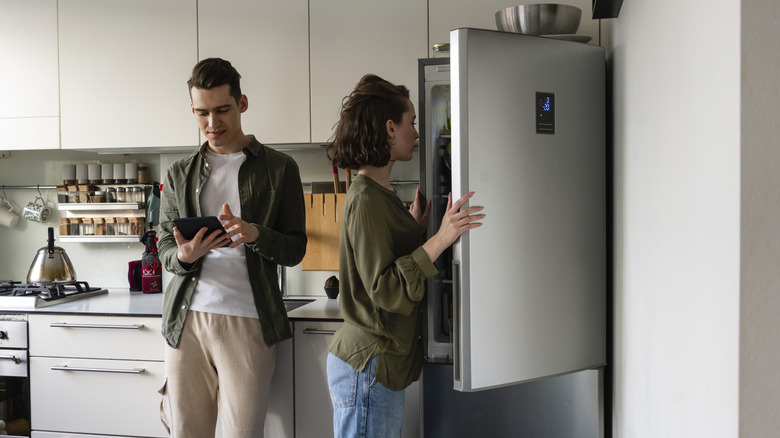Do Fridge Magnets Really Increase Energy Consumption?
We each have our different approaches to monitoring energy consumption in our households. Some are vigilant about ensuring that every single appliance is switched off and unplugged before leaving home, while others are more nonchalant and will think nothing of leaving the occasional light on. If you side with those who worry about their TV consuming electricity in standby mode, you're probably also wary of the rumor that fridge magnets might be increasing energy consumption.
It's difficult to take issue with fridge magnets. After all, they're wonderful souvenirs from trips, keep important mail suspended at eye level, and simply brighten up the often bare expanse of a refrigerator's body. Collectors and enthusiasts will be glad to know that their beloved adornments really aren't contributing to their energy bills.
Professor Selim Şeker of Üsküdar University's Department of Electrical and Electronics Engineering notes that, "The magnetic field created by magnets on the refrigerator does not affect the device's operating principle. Additionally, magnets have zero impact on the electricity bill." Fridge magnets are strong enough to stay in place on the door –- a function that some even struggle with –- and that's about all.
Why fridge magnets don't increase energy consumption
The belief that refrigerator magnets increase energy use stems partly from the idea that they have a small effect on the workings of the fridge through electromagnetism. Those who have an extensive magnet collection affixed to their device's door might be concerned about this, but there's no need. According to Endesa, the magnetic field of the magnet is so minor that it can't penetrate the machine or negatively impact its workings. Mirror quotes LG, one of the major refrigerator brands, as emphatically stating, "Magnets on the outside of a refrigerator have no impact on energy use, lifespan, or food preservation. This is simply a myth."
Üsküdar University's Professor Selim Şeker explained that this is because a refrigerator is typically within the 500 to 1000 watts range, and using "alternating fields." Meanwhile, "if the magnet uses direct current, its frequency is zero. Devices, on the other hand, operate at 50 hertz." It's possible for heavy or numerous fridge magnets to weigh on a fridge door, potentially requiring repairs or a replacement. In that sense, a crop of fridge magnets could potentially cost you more money over time.
It's good practice to avoid storing heavier items in the appliance's door, as it can increase the pressure on the all-important hinges. In a time when energy consumption and the cost of living is a greater concern than ever, it's critical to understand how to reduce the energy used by your refrigerator.
Some possible ways of limiting energy consumption
In broad terms, decorative magnets don't increase the energy consumed by a refrigerator, so you are free to adorn yours however you wish. For the electricity conscious, removing existing magnets won't have any impact, but there are some things that will. Refrigerators are very rarely switched off. It's designed to operate unobtrusively most of the time. In this mode of operation, your fridge is able to regulate its temperature most efficiently, keeping power use down.
Should the door be left open inadvertently, a rather obnoxious beeping sound will remind you to close it. This is important because not doing so means that the light is left on and cooler air is escaping, which can be a significant factor in a refrigerator's electricity usage. The manufacturer's instructions and your specific needs will help determine the most appropriate temperature settings for your appliance. A smart refrigerator can also be a useful investment worth considering, though it tends to come at a significant price and may be less beneficial for a budget-friendly household with simpler needs.


